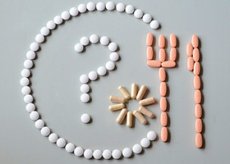Bacteriophages are more effective than antibiotics
Last reviewed: 23.04.2024

All iLive content is medically reviewed or fact checked to ensure as much factual accuracy as possible.
We have strict sourcing guidelines and only link to reputable media sites, academic research institutions and, whenever possible, medically peer reviewed studies. Note that the numbers in parentheses ([1], [2], etc.) are clickable links to these studies.
If you feel that any of our content is inaccurate, out-of-date, or otherwise questionable, please select it and press Ctrl + Enter.

American experts are sure that in the near future antibiotics will be completely replaced by bacteriophages - special viruses that affect pathogenic bacteria.
Bacteriophages are recognized as the best antibacterial agent. Despite the fact that scientists every year create more and more new and stronger antibiotics, bacterial cells gradually "invent" the response measures, showing resistance to treatment.
This can not be said with respect to bacteriophages. Resistance to antibiotics is one of the basic medical problems that scientists can only compare with the problem of increasing the incidence of cancer, atherosclerosis and diabetes. WHO representatives believe that the development of resistance to antibacterial drugs threatens future health and even poses a food danger to humans.
However, resistance is not the only "minus" of antibiotic therapy. "Omnivorous" antibiotics destroy and useful flora, living inside the intestine, on the skin, in the genito-urinary organs. Dysbiosis often causes the development of inflammation, metabolic and even malignant pathologies. And people do not always realize the depth of the existing problem.
Scientists studying nutrition and food at the George Mason University (US Virginia) have begun to investigate the therapeutic possibilities of bacteriophages, thinking to use them as a substitute for antibiotics.
Almost everywhere, where there are microbes, there are bacteriophages. These microorganisms are among the most numerous on our planet. Medicines are well known, for example, a staphylococcal bacteriophage, but its effect on the course of microbial infection has been little studied. And some experts even consider the use of such drugs to be risky.
A feature of "microbial devourers" is their selectivity. That is, if the action of the staphylococcal bacteriophage is directed to the destruction of staphylococci, then the lactobacillus drug "will not touch."
"The use of such viral agents completely solves the issue of the development of dysbiosis: useful microorganisms persist and continue their development and activities in order to maintain our health," explains Professor Taylor K. Wallace, one of the researchers.
Scientists conducted an experiment involving volunteers with deep intestinal dysbiosis. Participants were divided into groups: representatives of the first group were treated with bacteriophages, and the second group was given a "placebo".
A month after the start of the experiment, the participants took a break in treatment for 14 days. After this, the groups were swapped.
As a result it turned out that during the treatment with bacteriophage the intestines of patients were literally saturated with natural normal microflora. Patients with diagnosed metabolic syndrome had an increase in colonization of useful bifidobacteria, against a background of a decrease in the number of clostridia. And the most important: no side manifestation during therapy was found.
It is worth noting that almost a hundred years ago, bacteriophages began to be used as antimicrobial agents. However, after antibiotics were discovered, the bacteriophages were undeservedly "forgotten".
The results of the last scientific project were presented at a regular conference of the American Society of Nutrition, which was held this year in Boston. Full information can be found on the American Society for Nutrition website.

 [
[